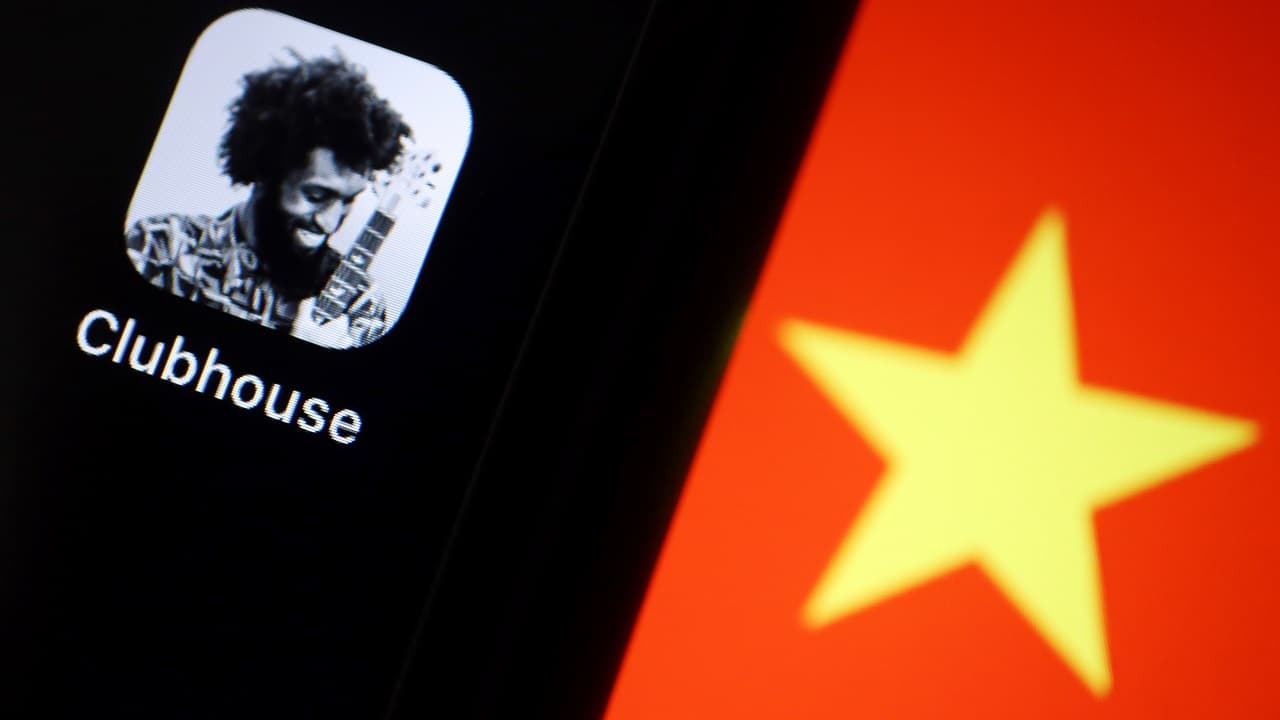
In-Depth | The Clubhouse sensation: Why the new social media app is a screaming success and what lies ahead

In-Depth | The Clubhouse sensation: Why the new social media app is a screaming success and what lies ahead
Over the last year, social media users – some frustrated with the likes of Facebook, Twitter and Instagram – have been exploring newer platforms. This was evident from the sudden surge in popularity of Mastodon and India-based Koo which have features similar to Twitter and Signal which positions itself as an alternative to WhatsApp.
And by now, you would have also heard (or seen the monochrome headshot icons) of ‘Clubhouse’ – the latest social networking sensation that has forced Facebook and Twitter to plan competing applications.
Within 10 months of its launch, the San Francisco-based app has millions of registered users and the number continues to swell, helping its valuation soar swiftly to $1 billion. And this may be just the initial steps for the potential social-media giant which has so far restricted access to limited invitations by existing users.
With several celebrities including the world’s richest man Elon Musk using it, the app is so much in demand that e-Bay is selling invitations for $89!
The app is a hit despite some concerns about online harassment, misinformation and privacy issues on the platform. Yet, users will tell you the platform feels lively, enables discussions on a wide range of topics while giving you the control of who can jump it to the conversation (unlike some of the other platforms).

Developed by Alpha Exploration Co., Clubhouse describes itself as an invitation-only audio-chat social media app. It was co-founded by Silicon Valley entrepreneur Paul Davison and former Google employee Rohan Seth.
It was launched in April 2020 just as the coronavirus pandemic spread across the world. With people working and studying from home, the application quickly became popular. By May 2020, it had managed to get a $12 million Series A investment from venture firm Andreessen Horowitz. There was no stopping after that. The app had 6 lakh registered users by December 2020.
But there are two caveats: for now, it’s only available on Apple devices running iOS and you’ll need an invite from an existing user to get in. However, in January, the company said it’ll begin working on an Android app “soon”. The ‘invite-only’ part may also be done away with as the platform looks to expand, which would open the doors for much bigger valuations.


Like Twitter, Facebook or most other social networking platforms, users can create a profile on Clubhouse. The profile page shows the people you follow and those following you. It will also list virtual chartrooms you are a part of. The app prompts scheduled and LIVE chats you could be interested in, using an algorithm.
Only the speakers hosting the chat can talk – unless you ‘raise your hand’ to contribute and the host accepts your request to join the audio chat. Think of it as a town hall meeting: the host and the speakers are discussing a topic on the stage. You are only an audience member (in this case, a listener) who would be allowed to participate at the hosts’ discretion.
 Image: Clubhouse app on iOS App Store
Image: Clubhouse app on iOS App StoreNonetheless, users have said it is more “live”, “social” and enables “two-way communication” unlike other platforms or podcasts.
You can also invite other Clubhouse users you know to join a particular chat session (for listening) if you think the topic or show would interest them.
Read: Clubhouse guide — how it works, how to get in and other key details

Clubhouse’s registered user base jumped to 60 lakh in February from 6 lakh in December last year after multiple moments under the limelight. In January, it started spreading like wildfire when billionaire Elon Musk was interviewed on the ‘Good Time’ show. With the live one-on-one chat limit of 5,000 people getting breached, some individuals reportedly created secondary listening rooms on Clubhouse as well as other platforms such as YouTube.
Few days later, Musk tweeted that he had agreed for a Clubhouse chat with American rapper and record producer Kanye West. He also invited Russia President Vladimir Putin for a conversation on the platform. The Kremlin described this proposal as “very interesting”, but added that they would “need to understand what [it] meant”.
The app’s popularity was boosted when other celebrities and prominent personalities such as Drake, Oprah Winfrey, Ai Weiwei, Lindsay Lohan and Roger Stone, and Facebook co-founder Mark Zuckerberg joined the bandwagon.
The demand for joining invitations is so high that it has been listed on eBay for $89.
The most entertaining outcome is the most likely— Elon Musk (@elonmusk) February 10, 2021
This growth did not go unnoticed among investors. Clubhouse raised $100 million in January at a valuation of $1 billion, according to PitchBook. Besides venture capital firm Andreessen Horowitz, Clubhouse now has 180 other investors.
Clubhouse’s rise was not confined to the United States. The platform became a hit in Japan and started picking up traffic in China. Some Chinese users joined others from Taiwan and the Special Administrative Region of Hong Kong, among other places, to discuss politics.
The New York Times quoted one such conversation: A Chinese man said he didn’t know if he should believe the widespread reports of concentration camps for Muslims in the China’s Xinjiang region. A Uighur woman calmly explained that she was certain of the camps’ existence as her relatives were among those interned. A Taiwanese man urged understanding on all sides and another from Hong Kong praised the Uighur woman for her courage to come forward.
Such a dialogue between common individuals from the mainland China, Taiwan and Hong Kong would not have been possible because of the ‘Great Firewall’ internet censorship mechanism.
The Chinese authorities quickly moved to ban the app which was not censored at that time. Searches for “Clubhouse” on Chinese social media platform Weibo were also blocked.
 Clubhouse app's icon is pictured near a star on the Chinese flag in this illustration picture (Image: Reuters/Florence Lo/Illustration)
Clubhouse app's icon is pictured near a star on the Chinese flag in this illustration picture (Image: Reuters/Florence Lo/Illustration)Read: In China, an app offered space for debate. Then the censors came
Thailand also warned Clubhouse users on February 17 to not break the law after the app emerged as a platform for debates about the monarchy. Thai Digital Minister Puttipong Punnakanta said authorities were monitoring Clubhouse users, and claimed that political groups on the app were spreading distorting information and potentially violating the country’s strict Lèse-majesté laws.
Many Thais – especially those protesting against the royal family – started joining Clubhouse after a prominent Japan-based critic of the Thai palace, Pavin Chachavalpongpun, recently started discussing the issues related to the monarchy on the platform.

But the application has also been criticised for creating shadow profiles of people who have never used it before but are merely in the registered users’ contact list. It has also been criticised for recording conversations in private rooms.
The Stanford Internet Observatory said it had confirmed that Chinese technology firm Agora Inc. supplied back-end infrastructure to Clubhouse, and that Agora would likely have access to users’ raw audio – potentially providing access to the Chinese government.
The research group said it observed room metadata relayed to servers it believed were hosted in the People’s Republic of China and audio to servers managed by Chinese entities. However, it said that it believed the Chinese government wouldn’t be able to access the data if the audio was stored in the United States.
Clubhouse responded to these concerns saying it was reviewing its data protection practices. It added that while it had opted not to make the app available in China, some people had found a workaround to download the app which meant the conversations they were a part of could be transmitted via Chinese servers.

With its business booming, Clubhouse is hoping to expand and enable more users to join the platform. But its path is not going to be easy. Facebook, Twitter and entrepreneur Mark Cuban have said that they are already working on competing apps, separately.
According to The Verge, Cuban is planning to launch Fireside, a “next-gen podcast platform” along with Falon Fatemi. The platform will also have a live conversation feature similar to Clubhouse. The app is hoping to go live for the public this year.
In December 2020, Twitter had announced that it has started testing the Spaces feature. It is a voice-based chat room. From what has been reported so far, it looks like any Twitter user will be able to join the chat room (in theory). But the user’s entry will have to be approved by the person who created the chat room – a bit similar to Clubhouse.
According to a report by The New York Times, Zuckerberg’s Facebook is in the early stages of developing a competing product. The company has a history of cloning – often successfully – products from rivals. In 2016, Facebook-owned Instagram replicated one rival Snapchat’s key Stories feature. In 2020, ‘Insta’ as it is popularly known as, unveiled ‘Reels’, a short-video feature similar to the offering by TikTok. The Menlo Park-based company had also launched teleconferencing service ‘Messenger Rooms’ following Zoom’s success during the pandemic.
Despite its initial success, Clubhouse is set to face intense competition from tech giants with an already-large user base. Only time will tell what the future holds for Clubhouse.